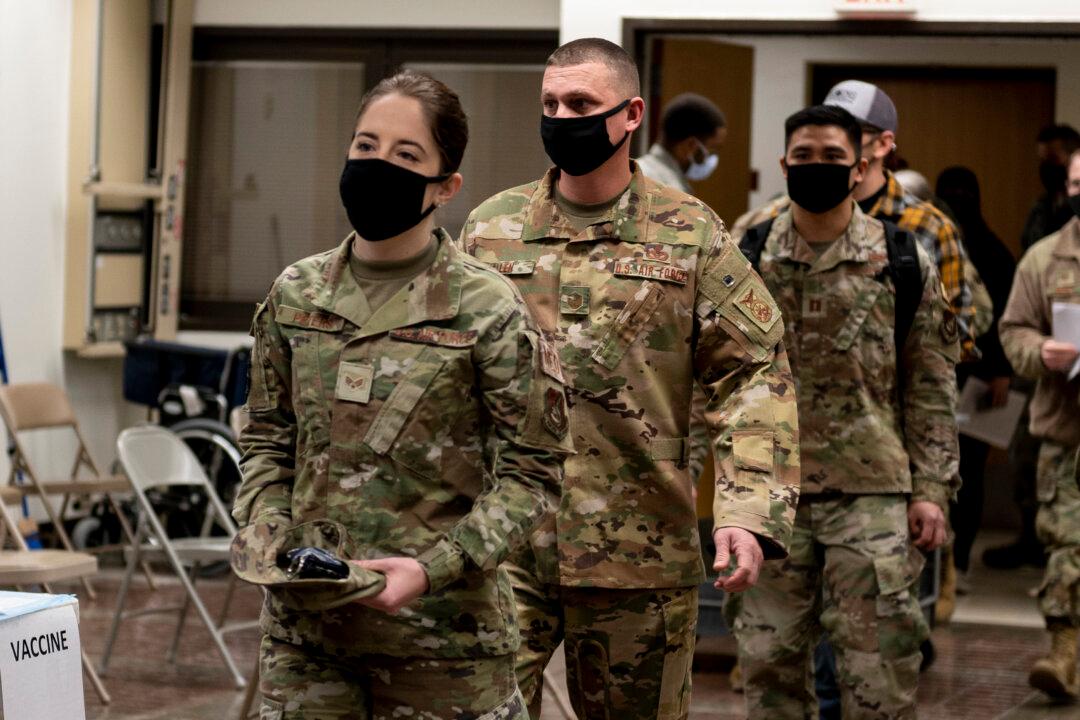The Air Force improperly adjudicated requests for exemptions from its COVID-19 vaccine mandate and has illegally only handed out exemptions to members who are on their way out, an appeals court stated on Nov. 29 as it rejected the military branch’s bid to lift an injunction against punishing thousands of unvaccinated servicemembers.
Eighteen servicemembers brought the suit in February, alleging that the military was violating the Religious Freedom Restoration Act by denying exemptions for members despite the members holding sincere religious beliefs against COVID-19 vaccination.





